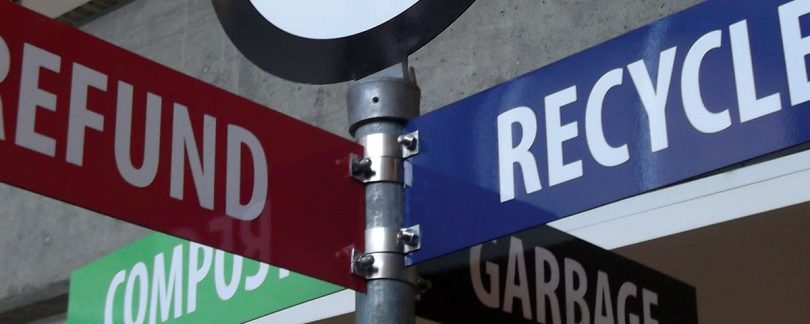[ad_1]
Metro Vancouver has tried to encourage more sustainable clothing manufacturing, but it hasn’t met with much success.
Richmondites won’t be able to drop off old clothing at local Return-It sites after the month of June.
This has prompted Richmond city council to see if they could set up a textile recycling program – or possibly ban textiles from the garbage stream.
But Richmond Mayor Malcolm Brodie cautioned this is a topic Metro Vancouver has looked into extensively, but there have been problems trying to get it going.
Essentially, Metro Vancouver has concluded public education is the best option.
Coun. Chak Au brought a motion forward to a recent committee meeting, asking the city to look at how it could “divert clothing and other textiles from going to landfills.”
In his rationale for the motion, Au pointed out 84 per cent of clothing ends up in landfills or is incinerated and those textiles that end up in the landfill can take more than 200 years to decompose.
In anticipation of the motion, Brodie asked Metro Vancouver why there isn’t a ban on textiles in the garbage stream.
Metro Vancouver replied that, because of lack of recycling markets for textiles – partly because they contain plastic and other synthetic fibres – it would penalize businesses that have no option but to throw out textiles.
Thrift stores that receive clothing donations that don’t meet their standards for resale and “cut and sew shops” that have cloth scraps are two examples of businesses that have to throw textiles into the garbage.
“A disposal ban would penalize businesses that were responsibly disposing of materials with no recyclable option,” Brodie said, reading from a letter from Metro Vancouver.
The fact is consumers buy cheap clothing that contains plastic and mixed clothing, according to Metro Vancouver, and when they supported some manufacturers to make clothing out of more sustainable textiles, they couldn’t make it in the market.
“We saw them go out of business… because consumers were not ready to pay the high price of locally made clothes,” Brodie cited from the letter. “So, all things considered, changing consumer behaviour seems like a good place to start.”
In the Lower Mainland, it’s estimated 20,000 tonnes of clothing is disposed every year.
A 2018 report, “Unravelling the Problem of Apparel Waste,” pointed out the price of clothing has gone down since 2000 when China entered the World Trade Organization.
“Relatively low prices for clothing, consumer confusion about what to donate, rapidly changing trends, and lack of commercially viable closed-loop recycling is resulting in an increasing amount of apparel going to disposal,” the report reads, calling it “take-make-waste fashion.”
And fast fashion continues to be highly popular with cheap prices but short lifespan of clothes.
A lot of work has been done by the National Zero Waste Council on textile recycling, Brodie explained, and he hopes they can help Richmond do research into the issue.
In the end, Brodie said a ban on textiles from the garbage stream might be an option, but it might have to come as a region-wide ban.
In the end, city council asked city staff to look into options around textile recycling.
The Return-It textile program was a pilot program, but the Salvation Army, which was accepting the clothing, said they could no longer accept textiles the program, saying they had enough from other sources.
Return-It tried to find another partner to accept the textiles, but weren’t able to secure one.
“We have tried to find a new partner for the program and unfortunately there are no other organizations that can participate in a way that will allow us to cover the program’s costs,” said Return-It’s interim CEO John Nixon.
[ad_2]
Source link








